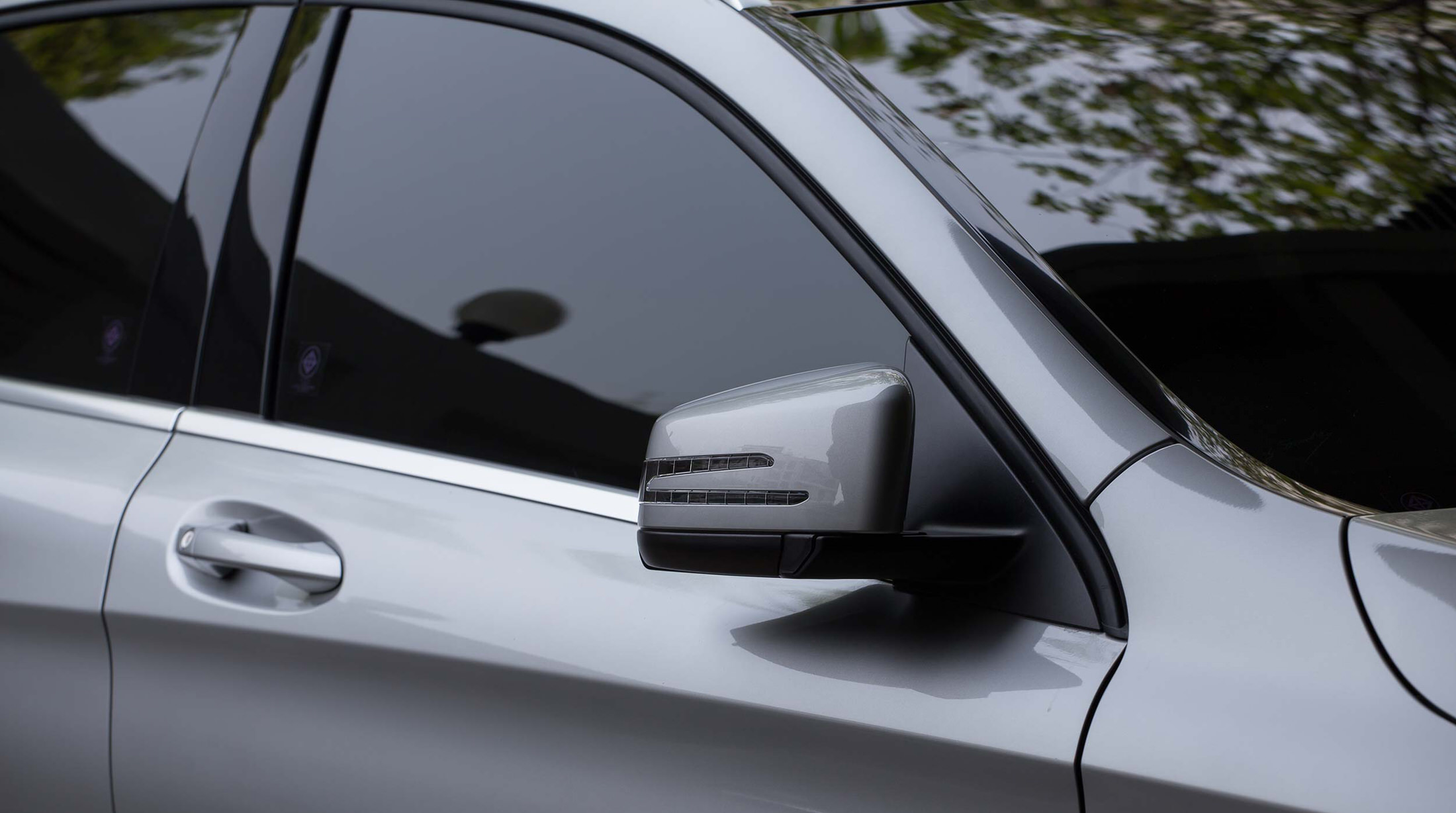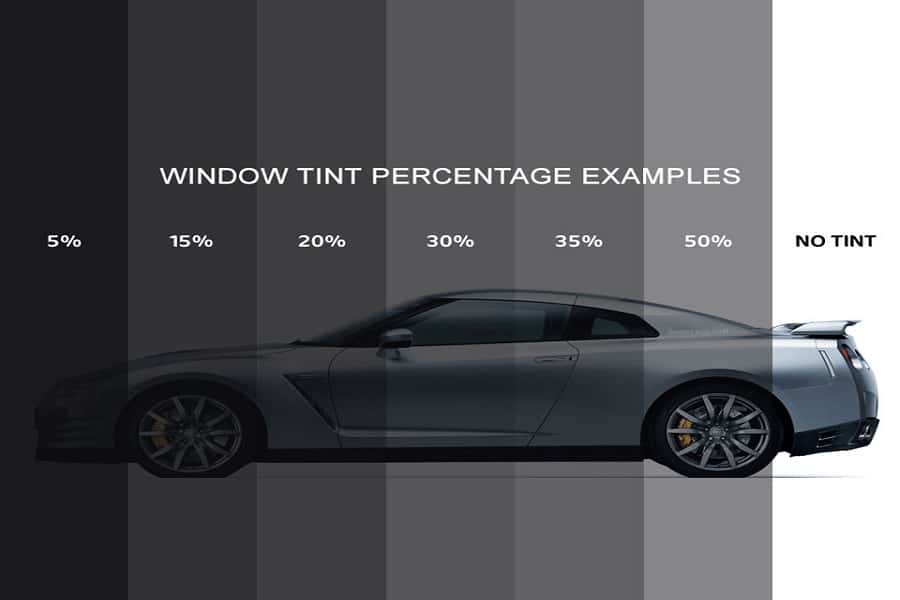Explore Professional Window Tinting Services for Enhanced Car Aesthetics
Explore Professional Window Tinting Services for Enhanced Car Aesthetics
Blog Article
Home Window Tinting Rules: What You Need to Know Before Tinting Your Vehicle
Recognizing home window tinting laws is vital for any kind of vehicle proprietor considering tinting their cars and truck. Laws vary dramatically from state to state, establishing particular restrictions for Visible Light Transmission (VLT) percentages, specifically for front-side windows and windscreens. Failing to follow these laws can result in fines, the need to get rid of the tint, and complications with insurance policy. As you contemplate enhancing your car's look and performance, it is essential to grasp not only the legal ramifications but additionally the sensible factors to consider that feature choosing the best tint. What factors should you focus on in your decision-making process?
Significance of Comprehending Tint Regulations
Comprehending home window tinting legislations is crucial for automobile proprietors to make sure conformity with state policies. These legislations determine the permitted levels of color darkness and reflectivity, which can dramatically vary from one territory to another. Stopping working to abide by these regulations can result in fines, required removal of the tint, and potential difficulties throughout lorry inspections.
Furthermore, comprehending these legislations assists automobile owners make informed choices about their tinting options. Different types of home window films provide various advantages, such as UV protection, warm denial, and glow reduction. However, without understanding of the legal limitations, vehicle owners take the chance of selecting items that might inevitably result in legal problems.
Additionally, understanding of tinting regulations promotes a much safer driving atmosphere. window tinting. Excessively dark colors can hinder exposure, increasing the risk of mishaps, especially during the night or in unfavorable weather. Law enforcement agencies additionally use these laws to ensure roadway security, making compliance not simply a lawful obligation but an individual responsibility
State-Specific Color Rules
Each state in the united state has developed its own certain guidelines relating to home window tinting, reflecting a diverse selection of requirements and needs. These policies can vary substantially, affecting just how vehicle proprietors approach installment and conformity. For example, some states allow darker colors on rear windows while enforcing rigorous restrictions on front-side home windows.
In addition, guidelines usually specify allowable tint products and shades. Certain states prohibit reflective colors completely, while others might permit them to a restricted level. Moreover, some jurisdictions mandate that cars with colored windows show a sticker label suggesting compliance with state laws, providing a clear recognition for police.
Enforcement of these regulations additionally varies; some states are a lot more aggressive, carrying out arbitrary checks, while others rely on issues or noticeable infractions to launch enforcement. Vehicle proprietors should know that failure to follow state-specific color regulations can result in fines, required removal of prohibited tints, or both.

Lawful Tint Percentages
Identifying the legal color percents is essential for car owners seeking to adhere to state guidelines. Each state has particular laws regulating how much light needs to pass via the home windows of a car, which is shared as a percent recognized as Noticeable Light Transmission (VLT) This percentage varies dramatically across states and can depend on the sort of home window-- front side, back side, and windscreen.
For example, some states enable just 20% VLT on front side windows, while others may permit approximately 50%. Windshield tinting is commonly a lot more restricted, with numerous jurisdictions permitting just a slim band of tint on top of the windscreen. In comparison, back windows normally have extra tolerant regulations, with some states allowing darker tints.
It is important for car proprietors to acquaint themselves with their neighborhood legislations to prevent possible legal problems. This includes understanding just how VLT is determined, as it can differ based on the kind of home window go to the website movie utilized. Staying notified regarding these regulations makes certain conformity and promotes safe driving conditions for both the car owner and others when driving.
Effects of Non-Compliance
Stopping working to stick to home window tinting laws can lead to considerable repercussions for automobile owners. Police officers educated to recognize prohibited tint degrees may issue fines, which can vary by jurisdiction however commonly vary from modest to substantial quantities.

Insurer might additionally enforce penalties for non-compliance, as unlawful adjustments can be watched as a violation of policy terms. This can influence insurance coverage prices or result in complications in claims if an incident happens.
Inevitably, the effects of non-compliance prolong beyond instant punitive damages; they can impact a motorist's insurance rates, legal standing, and general vehicle value, stressing the relevance of adhering to regional home window tinting guidelines.
Tips for Picking Tinting Options
Understanding the ramifications of non-compliance highlights the relevance of making educated choices when picking home window tinting choices. To start with, familiarize on your own with your state's certain regulations regarding color darkness and reflectivity. Each state has distinct laws that dictate the permitted limits, so ensure you stay within these standards to prevent charges.
Second of all, take into consideration the kind of color material. Options consist of dyed, metalized, and ceramic tints, each offering differing levels of heat rejection, UV security, and sturdiness. As an example, ceramic colors supply premium heat resistance without hindering electronic tools, making them a popular selection.
In addition, assess your primary function for tinting. If you seek enhanced personal privacy, choose darker tints; nevertheless, remember that this may affect exposure at evening. Alternatively, if glow decrease and UV defense are your main issues, lighter tints might suffice.
Last but not least, seek advice from an expert installer that is educated concerning neighborhood guidelines and can recommend top notch materials matched to your requirements (window tinting). Taking these factors right into account will ensure you make a knowledgeable decision, eventually improving both your car's aesthetic appeals and performance
Final Thought
In final thought, familiarity with window tinting regulations is vital prior to applying color navigate here to a car. By comprehending lawful demands and choosing appropriate tint materials, lorry owners can accomplish aesthetic enhancement while continuing to be compliant with pertinent legislations.
Understanding home window tinting laws is important for any type of lorry proprietor thinking about tinting their vehicle.Recognizing window tinting laws is vital for vehicle owners to ensure conformity with state policies. Some states allow darker colors on back windows while enforcing stringent limits on front-side windows.
In comparison, rear home windows normally have click now more tolerant regulations, with some states allowing darker colors. (window tinting)
In verdict, experience with window tinting laws is crucial prior to applying tint to a lorry.
Report this page